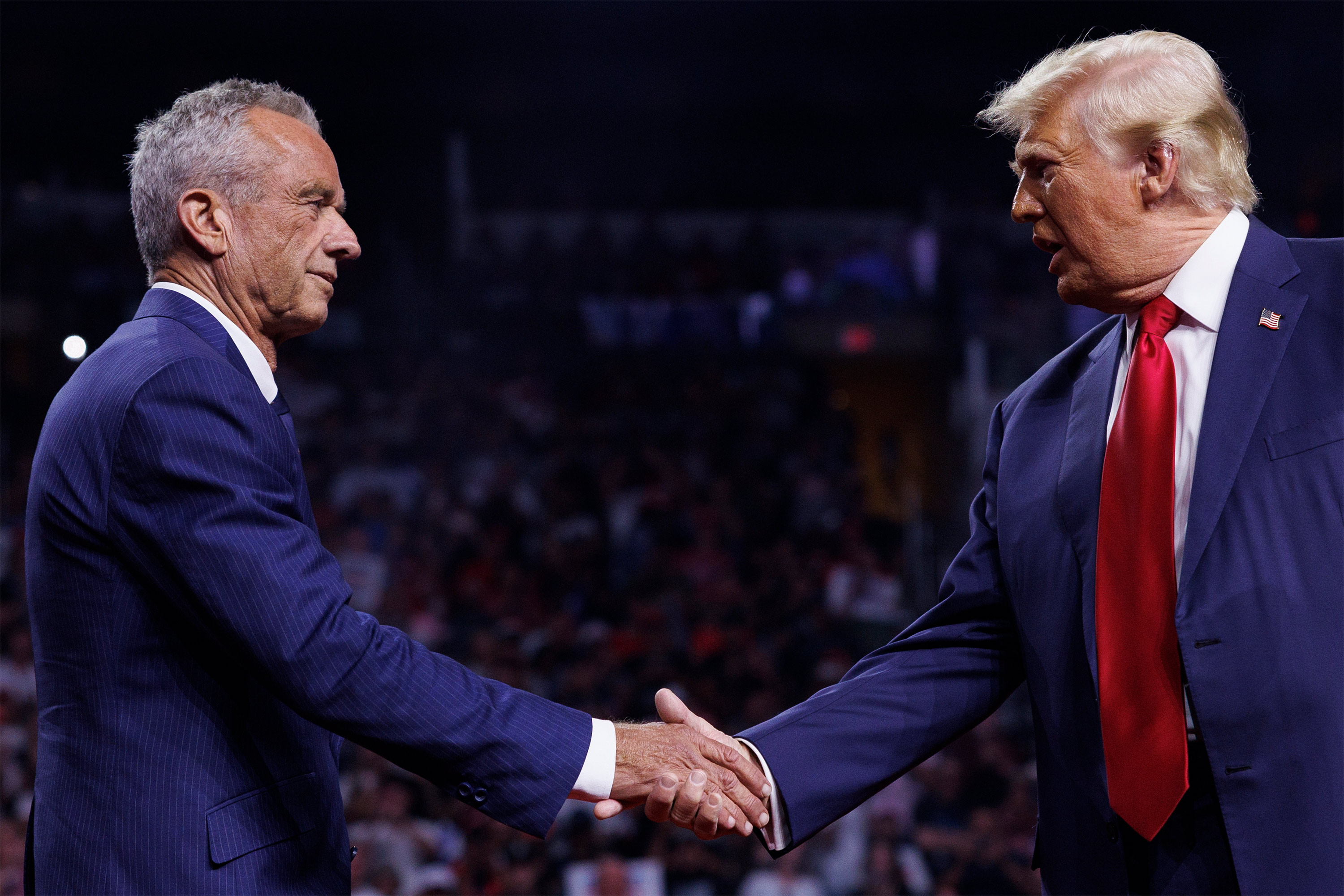The Evolving Landscape of Vaccine Skepticism in the Republican Party: A Look at Trump’s Influence
More than four years ago, during the height of the COVID-19 pandemic, the Trump administration launched Operation Warp Speed, a groundbreaking initiative aimed at accelerating the development and distribution of vaccines. This ambitious project is credited with saving millions of lives and is often hailed as one of the most significant public health achievements in recent history. However, as the political landscape has shifted, so too have the attitudes of many Republican voters towards vaccines, leading to a notable rise in skepticism. This article explores the paradox of Trump’s legacy in vaccine development and the current climate of vaccine hesitancy within the Republican Party.
The Shift in Republican Attitudes Towards Vaccines
In recent years, a substantial number of Republican voters have adopted skeptical views regarding vaccines, particularly in the wake of the COVID-19 pandemic. A September 2023 poll conducted by Politico and Morning Consult revealed that a narrow majority of Republican voters now prioritize concerns about vaccine risks over their benefits. This shift is emblematic of a broader trend within the party, where vaccine skepticism has become increasingly mainstream.
Former President Trump himself has acknowledged this transformation, stating in a late September interview, “The Republicans don’t want to claim it.” Despite having spearheaded a successful vaccine rollout, Trump has distanced himself from this achievement, focusing instead on appealing to the growing anti-vaccine sentiment among his base.
Trump’s Anti-Vaccine Rhetoric and Policy Proposals
In a striking departure from his previous support for vaccines, Trump has made numerous promises to cut funding to schools that mandate vaccinations. While his campaign has clarified that this pledge would primarily target COVID-19 mandates, his speeches have raised concerns that it could extend to vaccines for common childhood diseases such as polio and measles. This potential shift in policy could have dire consequences for public health, particularly as vaccine hesitancy continues to rise.
The former president’s outreach to anti-vaccine constituencies has included endorsements from prominent vaccine skeptics, such as Robert F. Kennedy Jr., who has been vocal about his opposition to vaccines. Trump’s alignment with figures like Kennedy signals a strategic move to consolidate support from the anti-vaccine base, further complicating the narrative surrounding his administration’s earlier public health successes.
The Legislative Landscape: A Surge in Anti-Vaccine Bills
The rhetoric surrounding vaccines has translated into tangible legislative action across the country. Political scientist Matt Motta has noted a dramatic increase in anti-vaccine bills, with at least 42 such measures enacted in 2023 alone—a nearly ninefold increase since 2019. This legislative shift reflects a growing movement within the Republican Party to challenge established public health norms and promote vaccine skepticism.
In Texas, for example, the GOP platform for 2024 includes proposals to ban mRNA technology, which underpins some COVID-19 vaccines and has potential applications in cancer treatment. Such measures illustrate the extent to which vaccine skepticism has permeated the party’s ideology, transforming it from a fringe viewpoint into a central tenet of Republican politics.
The Consequences of Vaccine Hesitancy
The rise in vaccine skepticism has coincided with a resurgence of preventable diseases. This summer, Oregon experienced its worst measles outbreak since 1991, a stark reminder of the potential public health crises that can arise from declining vaccination rates. Experts warn that the U.S. could face a return to the troubling days of the 1990s when vaccine skepticism led to thousands of measles cases.
Tom Frieden, former director of the Centers for Disease Control and Prevention (CDC), has emphasized the dangers of vaccine hesitancy, noting that many children who contracted measles during previous outbreaks suffered long-term health consequences. The World Health Organization reported that measles claimed over 100,000 lives globally in 2022, predominantly among children under five. These statistics underscore the urgent need for public health advocacy in the face of rising skepticism.
The Political Divide: Vaccine Skepticism as a GOP Strategy
The divide within the Republican Party over vaccines has become increasingly pronounced. Candidates like Florida Governor Ron DeSantis have made opposition to vaccines a cornerstone of their campaigns, while primary battles in states like Wyoming and Missouri have centered on anti-vaccine themes. This trend reflects a broader strategy among Republican politicians to leverage vaccine skepticism as a means of galvanizing their base.
Misinformation and conspiracy theories have fueled this anti-vaccine sentiment, with social media platforms playing a significant role in disseminating false narratives about vaccine safety. The politicization of vaccines has transformed them into a symbol of individual autonomy and resistance against government mandates, further entrenching skepticism within the party.
The Future of Vaccine Policy Under a Potential Trump Administration
Looking ahead, the implications of Trump’s anti-vaccine outreach could have far-reaching consequences for public health policy. Should he secure a second term, Trump could implement measures that undermine the CDC’s authority to issue vaccine recommendations, as outlined in Project 2025, a plan developed by the Heritage Foundation for a potential Republican administration.
Experts warn that such actions could hinder the federal government’s ability to respond effectively to public health emergencies, leaving communities vulnerable to outbreaks of preventable diseases. The potential for aggressive anti-immunization policies under a Trump administration raises significant concerns about the future of public health in the United States.
Conclusion: Navigating the Complex Landscape of Vaccine Skepticism
The evolution of vaccine skepticism within the Republican Party represents a complex interplay of politics, public health, and individual beliefs. While Operation Warp Speed remains a significant achievement in the fight against COVID-19, the current climate of skepticism poses challenges for public health advocates. As the political landscape continues to shift, it is crucial for policymakers and public health officials to address the underlying concerns driving vaccine hesitancy and work towards restoring trust in vaccines as a vital tool for safeguarding public health.
